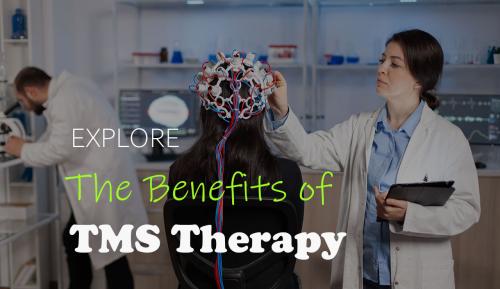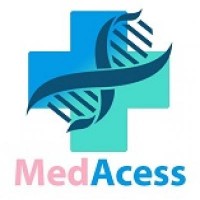Revolutionizing Depression Treatment with Transcranial Magnetic Stimulation (TMS)

Introduction
Depression is a formidable adversary, affecting millions of people worldwide and often proving resistant to conventional treatments like medication and therapy.
But in recent years, there has been a glimmer of hope for those battling depression – Transcranial Magnetic Stimulation (TMS). This innovative therapy is changing the landscape of depression treatment, offering new possibilities for individuals who haven't found relief through traditional methods.
The Need for Alternative Approaches:
Conventional treatments like antidepressant medications and psychotherapy work for many individuals battling depression. However, there's a significant portion of patients who do not respond to these therapies or experience intolerable side effects. For these individuals, TMS has emerged as a promising alternative.
Understanding Transcranial Magnetic Stimulation (TMS):
Transcranial Magnetic Stimulation is a non-invasive procedure that uses electromagnetic pulses to stimulate specific regions of the brain. This method is typically administered in a clinical setting by trained professionals.
How TMS Works:
Targeted Stimulation: TMS targets the prefrontal cortex, a part of the brain associated with mood regulation. By stimulating this area, TMS aims to alleviate depressive symptoms.
- Repetitive Sessions: Treatment involves multiple sessions over several weeks. Each session is relatively short, typically lasting around 30 minutes.
- Minimal Discomfort: TMS is generally well-tolerated, with few side effects. Patients can resume their daily activities immediately after each session.
The Benefits of TMS for Depression Treatment:
Non-Invasive: TMS doesn't involve surgery or medication, making it an appealing option for individuals concerned about side effects or invasive procedures.
- High Success Rate: TMS has shown significant success in clinical trials, with many patients experiencing a reduction in depressive symptoms.
- Reduced Side Effects: Unlike some medications, TMS doesn't carry the risk of weight gain, sexual dysfunction, or other adverse effects commonly associated with antidepressants.
- Lasting Effects: Many patients who respond positively to TMS report continued improvement even after treatment has concluded.
- Tailored Treatment: TMS can be personalized to the patient's needs, making it a versatile option for those with varying degrees of depression.
Is TMS Right for You?
If you or a loved one is considering TMS for depression treatment, it's essential to consult a qualified healthcare provider. Not everyone is a suitable candidate for TMS, and a thorough evaluation is necessary to determine its appropriateness.
Conclusion:
Transcranial Magnetic Stimulation represents a ray of hope for individuals struggling with depression, particularly those who have found little relief from traditional treatments.
While TMS is a promising option, it's important to consult with a healthcare professional to determine its suitability for your unique circumstances.
As the field of mental health continues to evolve, innovations like TMS offer renewed optimism for individuals on their journey to recovery.











Comments